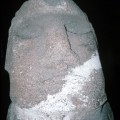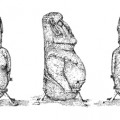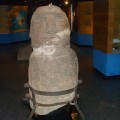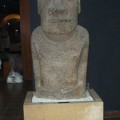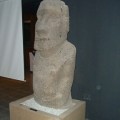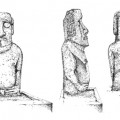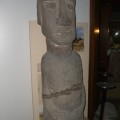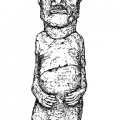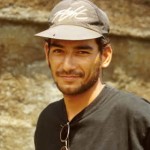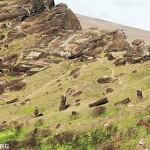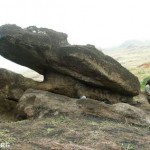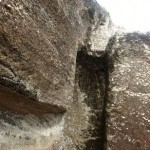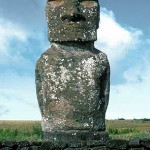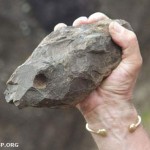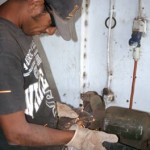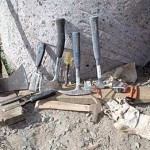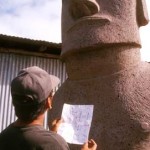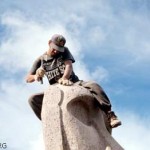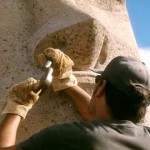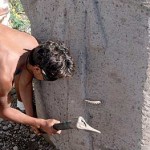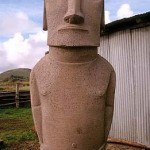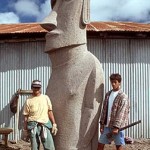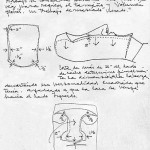July 12th, 2013
Megalithic Stone Sculpture from Easter Island (Rapa Nui) In the collection of the Museo Nacional de Historia Natural, Santiago de Chile
Jo Anne Van Tilburg, Ph.D.
Cristián Arévalo Pakarati
Informal Data Report to Claudio Gomez, Director,
Museo Nacional de Historia Natural
Appendix: Results of the 2012 XRF Analyses
Christian Fischer, Ph.D.
Mónica Bahamondez Prieto
Introduction
This report is generated with the use of data on file in the Easter Island Statue Project (EISP) archives. Data were collected by Jo Anne Van Tilburg and Cristián Arévalo Pakarati on-site during four visits in 1991 and 2007 and as well during various archive searches in Chile. The numbers assigned to each statue are EISP inventory numbers. The actual museum accession numbers are cross-referenced in the EISP files. Publication of the recent British Museum Press volume dealing with that museum’s statues includes a summary description of these in Santiago(Van Tilburg 1992, 2006). Data provided in the Appendix were collected by Christian Fischer and Mónica Bahamondez P. on site in 2012 and as part of the Easter Island Statue Project Conservation Initiative funded by the Archaeological Institute of America. Read the rest of this entry »
Tags: Cristian Arévalo Pakarati, drawings
Posted in Museum Objects Inventory |
May 4th, 2009
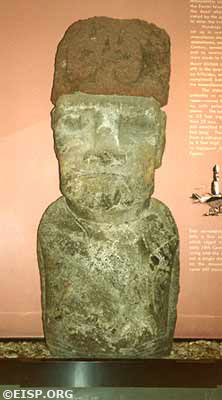
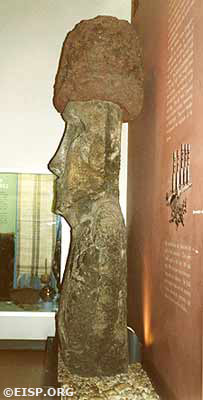
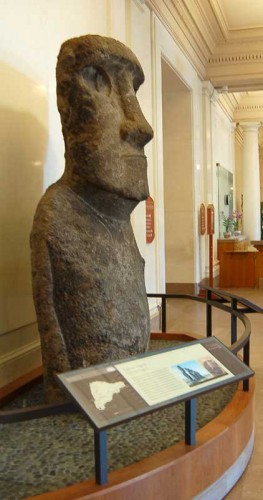 (far left, 2 images) EISP archive photos of Moai SI-WDC-001, located at the Smithsonian Institution in Washington DC, USA. Photos by Jo Anne Van Tilburg, 1986 © JVT/EISP.
(far left, 2 images) EISP archive photos of Moai SI-WDC-001, located at the Smithsonian Institution in Washington DC, USA. Photos by Jo Anne Van Tilburg, 1986 © JVT/EISP.
(left) Moai SI-WDC-001 is currently installed inside the Constitution Ave. entrance of the National Museum of Natural History, Smithsonian Institution in Washington D.C.
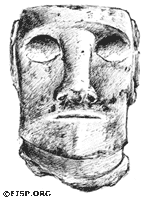
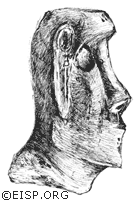
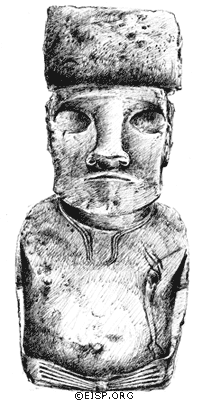
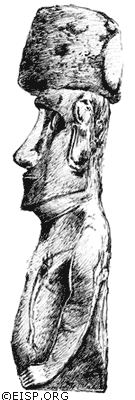
EISP archive drawings of Head SI-WDC-002 and Moai SI-WDC-001, both originally from Ahu O’Pepe, are currently in the collection of the Smithsonian Institution. Drawings by Cristián Arévalo Pakarati, 2000© JVT/EISP.
RELATED RECORD: Cristiàn Arèvalo Pakarati, Rapanui artist and EISP co-investigator with Dr. Adrienne L. Kaeppler, curator of oceanic ethnology at the National Museum of Natural History, Smithsonian Institution, on site at Ahu O’Pepe.
Tags: Cristian Arévalo Pakarati, drawings
Posted in 1980s, Field Notes & Documents, Museum Objects Inventory |
April 19th, 2009
This is an abbreviated version of a paper originally published in Pacific Art: Persistence, Change and Meaning (Herle et al. eds. Adelaide: Crawford House, 2002 for citations and notes).
Real Time and Individual Energy
Experimental archaeology is the systematic approach used to test, evaluate and explicate method, technique, assumption, hypothesis and theory at all levels of archaeological research. This paper employs a replicated moai to describe relationships between real time and individual energy, and explores the subjective artistic dimension of moai carving during an experiment lasting 32 8-hour days. It is drawn from journal notes taken by Van Tilburg from October 1997 to May 1998, by Arévalo from December 1988 to July 1999, and on written correspondence in English and Spanish between the authors.
Carvers and Craving
On Easter Island (Rapa Nui) ethnographic data related to monolithic stone carving methods, production techniques and carvers are scant. In the 1800s some Rapanui persons were distinguished by their relationships to ancestors who had been famed stone carvers. Katherine Routledge, co-leader of the Mana Expedition to Easter Island, 1913-1915, collected some names of statues that were said, in actuality, to be names of carvers, and believed them to have veracity.
Read the rest of this entry »
Tags: Cristian Arévalo Pakarati, Rano Raraku
Posted in 1990s, Sculpture Embellishment, Transport Experiment |
April 18th, 2009
January 5, 2009
Efforts will protect and preserve Easter Island’s Rapa Nui Moai statues
Boston – The Archaeological Institute of America (AIA), North America’s oldest and largest organization devoted to the world of archaeology, has selected the monolithic sculptures (moai) of Easter Island (Rapa Nui), Chile, and national park as its second site preservation project. With a grant to the Easter Island Statue Project from the organization’s AIA Site Preservation Task Force, the Project will develop stone preservation techniques to arrest the rapid deterioration of these statues as a result of the fragile nature of their volcanic stone, climate change, and tourism. The Easter Island Statue Project is directed by UCLA archaeologist Jo Anne Van Tilburg and co-directed by Cristían Arévalo Pakarati.
Read the rest of this entry »
Tags: Cristian Arévalo Pakarati, Jo Anne Van Tilburg, Petero Edmonds, Rano Raraku
Posted in AIA Partnership, Conservation, Featured Articles |
 English
English  Español
Español 